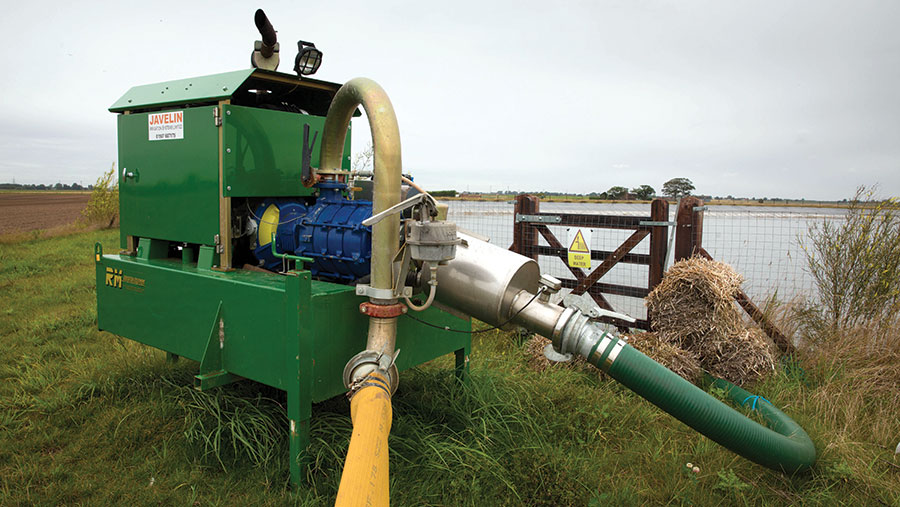Business Clinic: What should I consider for reservoir plan?
 © Tim Scrivener
© Tim Scrivener Whether you have a legal, tax, insurance, management or land issue, Farmers Weekly’s Business Clinic experts can help.
Building a reservoir is a challenge in itself. Bringing in ‘waste’ materials from other sites may cuts costs but adds complications, as Jack Sharpe of Carter Jonas explains.
See also: Changing holiday lets to residential lets
Q. I am considering creating a reservoir on my land to irrigate my vegetable crops and have heard that additional income can be generated by importing inert materials.
What does this mean and is this really the case? What else do I need to take into consideration? Is there any funding available and do I need planning permission?
You’re certainly not the only farmer to be struggling with the unpredictability of the weather. Many are looking into abstraction licences and others are exploring opportunities to create a reservoir to store rainwater for irrigation.
You need to properly plan where the reservoir is to be constructed, considering the water requirement, availability, reservoir size and site suitability.
Before getting too far down the line, it is imperative to ensure you have an adequate water source.
Engaging in early discussions with the Environment Agency (EA) is essential, as it will have the final say on the details of any water abstraction licence.
In terms of grant funding, this window has unfortunately closed. However, it is always worth monitoring updates in the farming press, as situations can change.
Planning permission
You are likely to require planning permission. There are some exceptions that fall within permitted development – in our experience, though, these are limited.
This is particularly the case when the importation of inert materials or, indeed, the extraction of minerals for sale off-site is to provide an income stream to fund the construction of the reservoir.
This does add a further layer of complexity, in that you will need planning permission for this also, and it is not something to be undertaken lightly.
Colleagues in the minerals and waste management team advise that, in addition to gaining planning permission, there are several other essential steps.
Environmental permit
First, you will need to gain the correct environmental permit to enable you to import, dispose of, or recover waste materials on your land.
There are various permitting routes (managed by the EA), each with their own set of pros and cons.
As well as this there are materials management plans (MMP) controlled by the CL:AIRE Protocol governing waste.
The time and cost associated with obtaining a permit or MMP vary significantly and will depend on the site and the permitting route you choose.
We estimate that you would need a minimum of three months to obtain an MMP and up to eighteen months to obtain a waste recovery permit.
Costs again depend upon the permitting route taken and the size, nature and location of the proposed scheme.
To ensure that it is built to the correct standards and complies with relevant regulations, you will need an engineer’s design drawing for the reservoir. I recommend getting specialist minerals/engineering advice for your circumstances for this.
Cost
With all of this, the costs are likely to reach the tens of thousands – though there remains real profit-making potential.
It’s not a straightforward process and I recommend considering the investment in the wider context of your farming business before deciding whether or not it’s the right step.
If you decide that it is, it might be worth investigating the possibility of a joint venture with a neighbouring farmer or waste management operator; you share the benefit and profit but, more importantly, the initial capital expenditure.
Your first step should be to seek expert advice – as with any project including minerals, which is a very specialist area. You need to make sure you are not taking any unnecessary risks – in terms of finances, compliance, safety or otherwise.
Do you have a question for the panel?
Outline your legal, tax, finance, insurance or farm management question in no more than 350 words and Farmers Weekly will put it to a member of the panel. Please give as much information as possible.
Send your enquiry to Business Clinic, Farmers Weekly, RBI, Quadrant House, The Quadrant, Sutton, Surrey SM2 5AS.
You can also email your question to fwbusinessclinic@rbi.co.uk.

